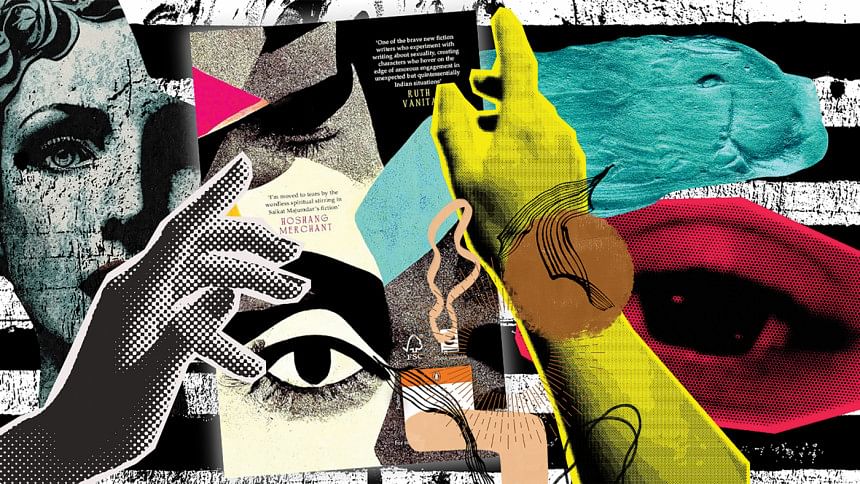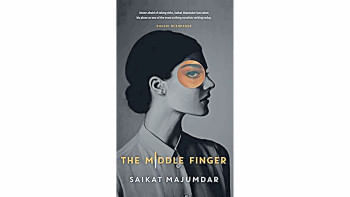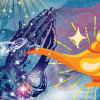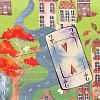A wound in our experience

"An exceptional novel that makes gender disappear to build unconventional love and friendship"
-Vivek Shanbhag
Saikat Majumdar's latest novel, The Remains of the Body, is a deeply visceral and textured exploration of loss, desire, and identity. To an unsuspecting reader, the novel might start out as a love triangle rising out of marital discord, or betrayal of old friendships. The Remains of the Body, however, delves deeper into examining various forms of relationships reflecting the complex human psychology in an intricate and ever-changing world.
Set in Toronto and La Jolla, the storyline constantly moves not just between places, but more between times. The story is narrated from the perspective of Kaustav, who is a post-doc fellow based in Toronto. He is a bachelor, but it is hinted that he had had romantic relations with women throughout his life. The novel begins in the backyard pool of Avik's spacious home in La Jolla, California. A cautious reader might find it symbolic because human life begins in water—in the womb of one's mother. And then all three major characters, Kaustav, Avik, and Sunetra are seen playing in it. The complexity of their relationship is introduced right there as they thrash about the pool aimlessly, each revealing in different ways the dysfunctionality of their seemingly successful lives. Kaustav's position is perhaps the most vulnerable as he is caught between his love for both his childhood buddy Avik and his wife Sunetra.
Avik is a professional whom his childhood friend Kaustav describes as a big baby who never grew up. Their relationship goes far back into the past when they were mere boys and shared intimate moments and secrets. As adults, they are still forever attached, even though their relationship is dotted with occasional jealousy and doubt. Hence, Kaustav and Sunetra can make fun of Avik and his successful friends with houses in suburbs, who seem mad about "goat curry for dinner and sausages for breakfast and their wobbly tummies" and laugh over "sad jokes and endlessly recycled memories from their engineering college hostel days."
Many readers would identify the problems of the modern-day system in Sunetra's words when she observes how the not-so-academically-bright ones made it to the top and she, the best student of her class, was merely a highly paid lab assistant. And Kaustav, another top student in his discipline was barely making ends meet despite being affiliated with the best universities. When Kaustav accuses Avik of hindering Sunetra from pursuing her dreams in academia and joining instead a research-intensive biopharmaceutical company, he feels a "kick in his groin," as the latter retorts that Sunetra and Kaustav are equally impractical, and that the world does not run on theories. Here, the readers suddenly have the lens being reversed—Kaustav and Avik, the old friends, had been looking at each other through the same lens and shaking their heads and calling each other immature.
Many readers would identify the problems of the modern-day system in Sunetra's words when she observes how the not-so-academically-bright ones made it to the top and she, the best student of her class, was merely a highly paid lab assistant. And Kaustav, another top student in his discipline was barely making ends meet despite being affiliated with the best universities.
Seemingly caught between the two men in her life, Sunetra shows a strength that is characteristic of women thwarted from attaining their dreams. Bright as she is, she is quick to realise that Kaustav and her adulterous adventures were merely mistaken acts. For Kaustav, at least, it turns out to be the means to reach out to an unattainable body. Sunetra is quick to retreat because she cannot afford to make another mistake. In some ways, she may remind one of Garima Basu, a fascinating New Woman from The Firebird, Majumdar's second novel, who pursued her dream of stage-acting in spite of being criticised both at home and outside. Sunetra's plight and decision to finally pursue her unfulfilled dream is not altogether unusual in a world where marriages often end in divorce because the highly qualified wife refuses to be quelled by the dictatorial husband. Her struggles also touch on an important segment of women's problems in a patriarchal world where men and women are forever set across from each other simply because of power structures.
The Remains of the Body is a very short novel, barely 172 pages. But a sensitive reader would find it fascinating, not necessarily for the storyline, but for the portrayal of a world that is both vibrant and realistic. Anyone frequenting the diasporic world and familiar with the tension between academia and the corporate world would recognise the scenes depicted in this slim volume. One will also find remnants of loss, pain, and love that keep us alive. In his "Acknowledgements", the author writes: "Sometimes we write because there is a wound in our experience of life about which we can do nothing. Writing then becomes a cry of both pain and war." The words are a reminder that life is a constant battle and there are many wounds. A wound-free life might be happier, but the wounds give meaning to our lives because each one of them has a story.
In a recent interview with Platform Magazine, Majumdar observes, "I think this book ends up showing that what we call queer is actually a pervasive reality, and the heteronormative ideal is just that—an ideal that is forced due to the needs of the state and the market." In some crucial ways, these words capture the spirit of our world. The characters with a Dostoevskian analytic turn of mind often make ruthless assessments of the selves, and thus are a constant reminder that there are so many contradictions and conflicts in the modern world that the word "normal" has lost its traditional meaning, as have many others.
Sohana Manzoor teaches English at the University of Liberal Arts Bangladesh (ULAB).

 For all latest news, follow The Daily Star's Google News channel.
For all latest news, follow The Daily Star's Google News channel. 








Comments